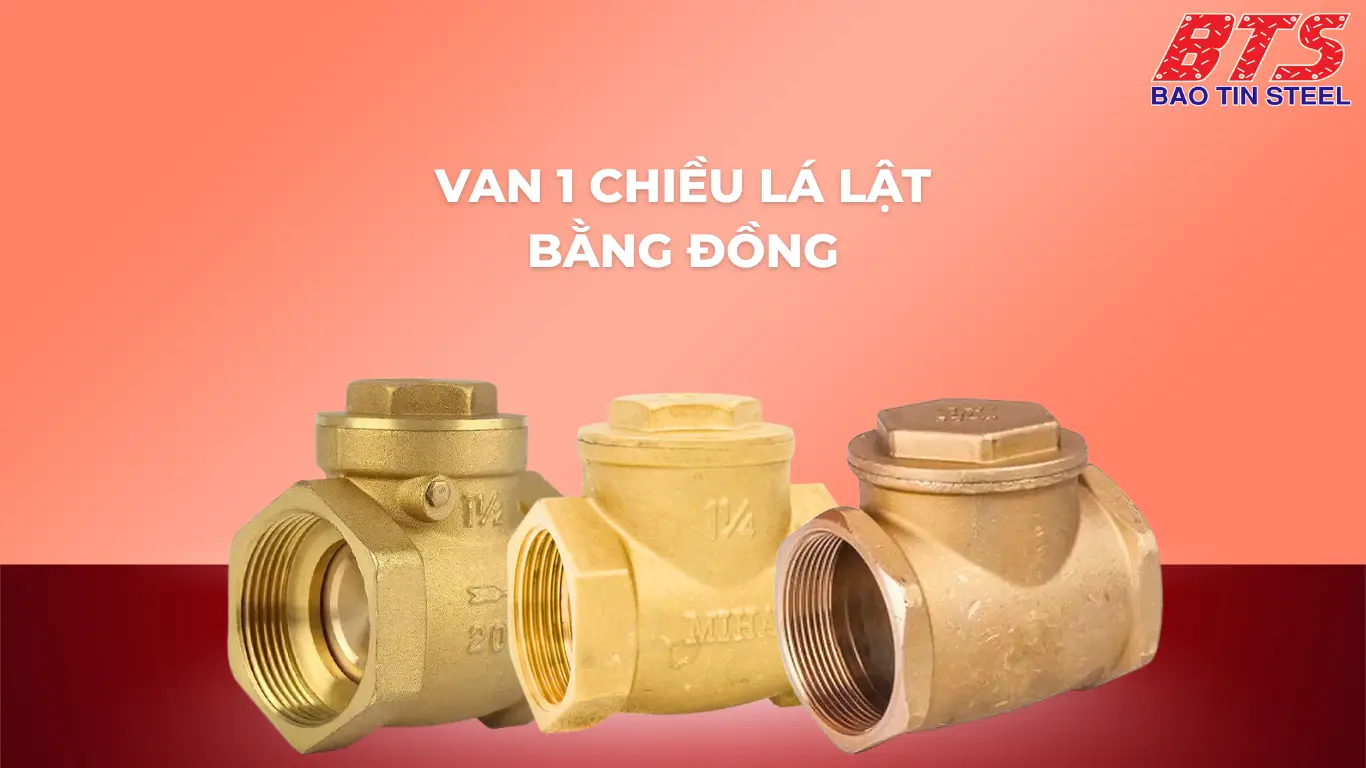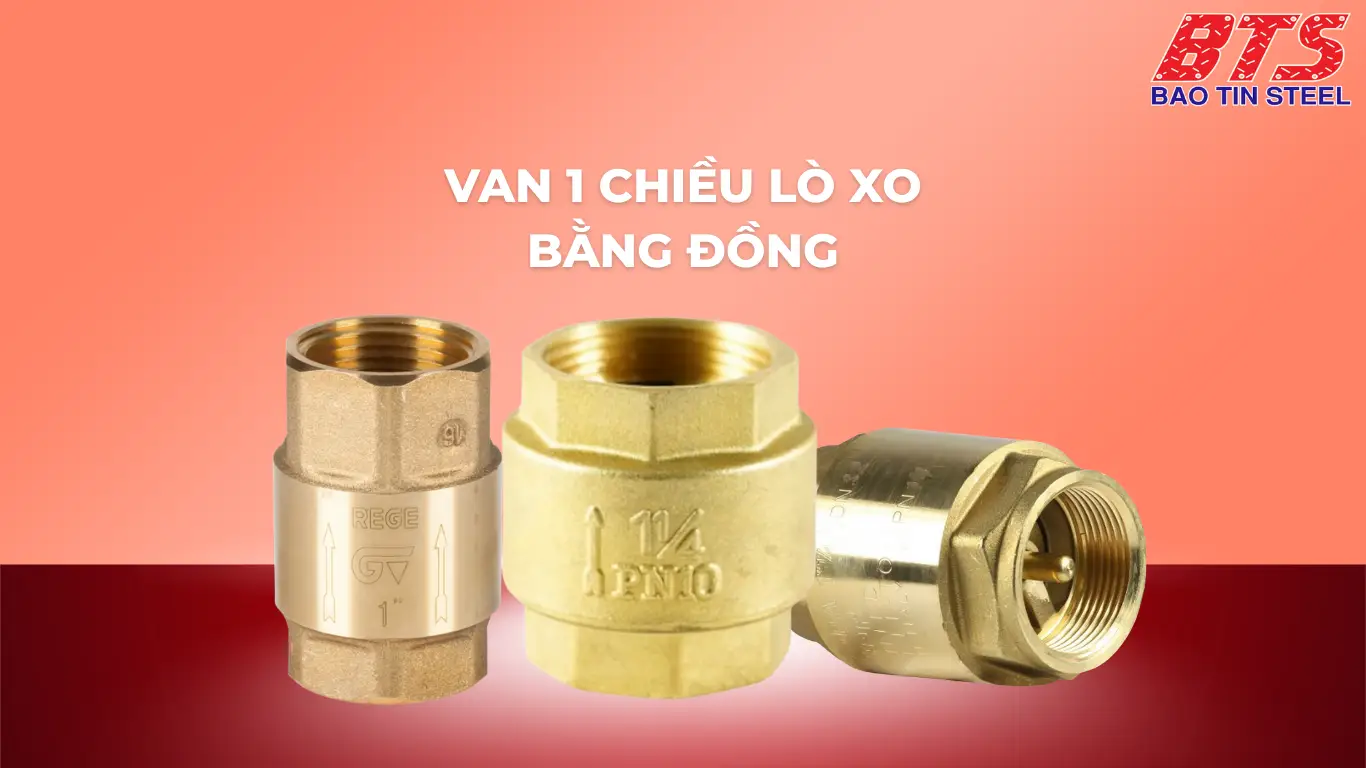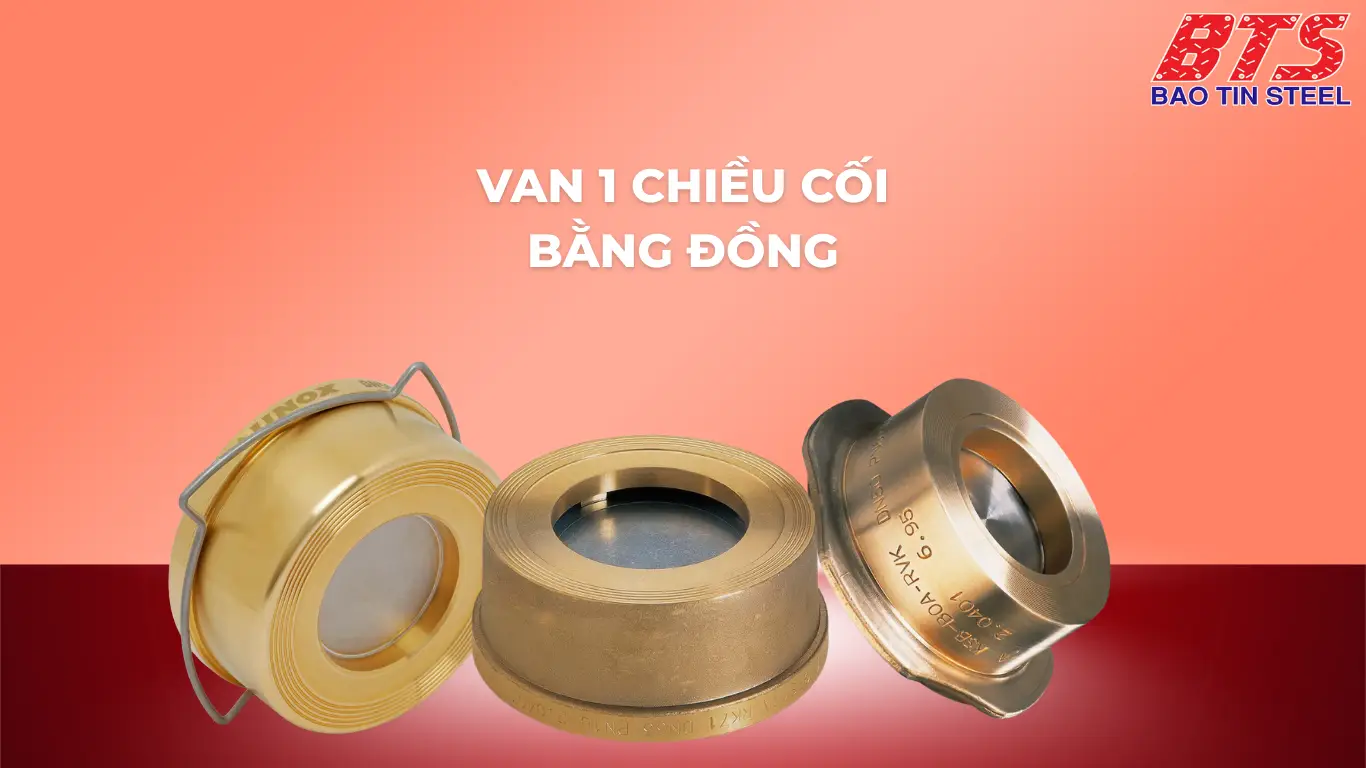Among various valve materials, brass check valves (also known as brass one-way valves, non-return valves, or stop valves) are particularly popular thanks to their excellent balance of durability, corrosion resistance, and affordability.
These valves operate reliably in clean water, compressed air, and oil systems under medium pressure, making them ideal for both residential projects and light industrial applications.
Popular Types of Brass Check Valves
In today’s market, brass check valves are available in a variety of designs to suit different usage needs. Among them, the three most common types are:
Brass Swing Check Valve

Structure & Operating Principle
The valve features a disc-shaped flap attached to a hinge inside the valve body. When fluid flows in the correct direction, the flap swings open to allow passage. When the flow stops, the flap automatically swings back down due to gravity and reverse pressure, preventing backflow.
Advantages
- Simple design with few components → easy maintenance and long service life.
- Affordable → suitable for residential systems.
Disadvantages
-
Closes slowly when the flow stops suddenly → may cause water hammer.
Applications
- Residential water supply systems
- Horizontal pipelines
- Household pumps
Spring Check Valve

=> Learn More: What is a Spring Check Valve? Types, Applications & How to Choose
Lift Check Valve

Structure & Operating Principle
The valve disc moves vertically like a piston. When the flow pressure is sufficient, the disc is pushed up to allow fluid to pass. When the flow stops, the disc falls back, closing the valve tightly.
Advantages
- High sealing performance → prevents leakage effectively.
- Efficient under high pressure.
Disadvantages
- Usually only suitable for horizontal pipelines.
- Bulkier than spring check valves.
Applications
- Light industrial systems
- Fire protection systems (PCCC)
- Pipelines requiring high sealing performance
Advantages of Brass Check Valves
Compared to other materials like plastic, cast iron, or stainless steel, brass check valves (also called brass one-way valves) are widely preferred for their balance of durability, performance, and cost. Key advantages include:
- Corrosion resistance and durability
Brass resists rust in environments such as clean water, compressed air, and oil, ensuring long-term stability and minimal damage, suitable for both residential and light industrial systems. - Stable temperature and pressure tolerance
Brass valves can operate at temperatures up to 120°C and pressures up to PN16 (16 bar), significantly higher than plastic valves (60–80°C). This makes them ideal for hot water, compressed air, and fire protection systems. - Lightweight and easy to install
Brass valves are compact and easy to connect to pipelines via internal or external threads. Their moderate weight simplifies transportation and installation compared to cast-iron valves. - Cost-effective compared to stainless steel
While stainless steel valves offer excellent corrosion resistance, they are expensive. Brass check valves are a more economical choice for standard systems, offering durable performance at a reasonable cost. - High sealing and quiet operation
Integrated rubber or silicone gaskets provide excellent sealing, preventing fluid leakage. The automatic opening and closing mechanism ensures smooth and quiet operation.
Applications of Brass Check Valves
Thanks to their outstanding durability, heat and pressure resistance, and reasonable cost, brass check valves are widely used in various systems, ranging from residential to light industrial applications:
- Domestic water supply systems
- Household water pumps
- HVAC (heating, ventilation, and air conditioning) systems
- Fire protection systems (PCCC) and in medium- to small-scale pipelines for oil, gas, or compressed air
2025 Latest Prices for Brass Check Valves
The market price of brass check valves in 2025 fluctuates depending on the brand, size (DN), valve type (swing, spring, or stop), and the distribution policy of each supplier. Additionally, prices are affected by copper raw material costs, transportation fees, and order quantity.
Below is a reference price table for some brass check valve models from Minh Hòa (MIHA/MBV) – a popular domestic brand:
| Product Name | Specification (DN) | Reference Price (VND, excl. VAT) |
|---|---|---|
| MIHA Swing Brass Check Valve | DN50 | 466,600 |
| MIHA Swing Brass Check Valve | DN65 | 829,400 |
| MIHA Swing Brass Check Valve | DN80 | 1,124,900 |
| MIHA Swing Brass Check Valve | DN100 | 2,042,700 |
| MBV Swing Check Valve | DN21 (1/2”) | 52,800 |
| MBV Swing Check Valve | DN27 (3/4”) | 69,630 |
| MBV Swing Check Valve | DN42 (1-1/4”) | 214,610 |
| MBV Swing Check Valve | DN49 (1-1/2”) | 283,580 |
| MBV Swing Check Valve | DN60 (2”) | 451,440 |
| MIHA Spring Brass Check Valve | DN42 (1-1/4”) | 281,050 |
| MIHA Spring Brass Check Valve | DN60 (2”) | 567,820 |
Note:
- These prices are for reference only, exclude VAT, and may change depending on the purchase time.
- For bulk orders or projects, customers usually receive higher discounts.
- Besides Minh Hòa, there are other brands on the market, such as Sanwa (Thailand) and Itap (Europe), with price differences depending on the segment.
To receive the most accurate and preferential quotation for brass check valves, customers are recommended to contact Bao Tin Steel directly – a reputable supplier of steel pipes, valves, and piping accessories in Vietnam and Cambodia.


 Tiếng Việt
Tiếng Việt ភាសាខ្មែរ
ភាសាខ្មែរ